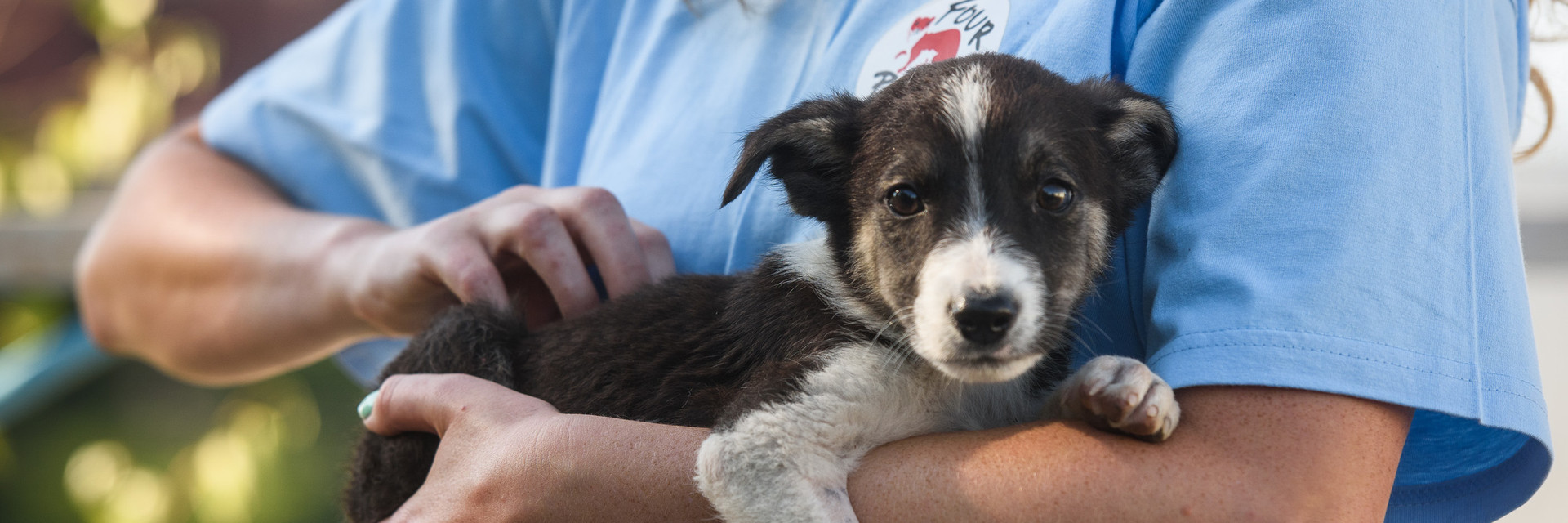
Setting the Record Straight on Spaying/Neutering Myths
World Spay Day advocates spaying and neutering as a proven means of saving lives
Millions of companion animals, feral and stray cats, and street dogs are suffering every day. Spaying/neutering can prevent them from being put down in a shelter or being killed on the street. To raise awareness, World Spay Day is held on the last Tuesday in February each year.
Spaying and neutering are important healthcare procedures for puppies and kittens, as well as for older dogs and cats, but myths and misconceptions about them may prevent pet owners from taking action.
Animal Welfare Scientist from the FOUR PAWS Science Unit, Sabrina Karl, says a pet should be spayed if there is the risk of unwanted reproduction either in their own household indoors or if the pets can roam around outdoors. Another reason would be if there are various pets at home or outdoors and the risk of fighting or hurting each other exist due to natural competition, in particular due to them being of the same sex, or aggressions towards humans triggered by sexual hormones. “In a country where cat and dog overpopulation is an issue, spaying animals is crucial to avoid an increase of stray animal populations” says Sabrina. She points out that indoor pets should also be spayed.
She advises dog owners to consider neutering a male dog if he shows behaviours that indicate a high stress level from staying inside and trying to escape to reach females in heat outside, intensely howling, scratching doors, or refusing to eat.
Dr. Margarita Chankova, FOUR PAWS’ Head of Stray Animal Care Bulgaria who, with her team, has completed tens of thousands of spaying and neutering procedures. She points out one common misconception is that male dogs that are neutered are not effective guard dogs or are unable to hunt or track as well as before they were spayed or neutered. She also remarks that there is a belief that a female dog must have a litter before she can be considered a 'good dog'. She emphasises these beliefs are false. “Spaying and neutering can still benefit them without diminishing their capacity to carry out their roles.” In fact, neutering can reduce sexually driven aggression and help male dogs to stay focused on their guard and hunting dog duties. Ultimately, these procedures can help to keep pets healthier and happier for longer.
Myths Surrounding Spaying or Neutering Pets
- Dogs and cats get fat if they are neutered or spayed.
True: Spaying and neutering do not cause weight gain if pet owners continue to provide healthy diets and exercise. While the health benefits of spaying and neutering outweigh the risks, pet owners should be aware of the importance of proper diet and exercise for their pets regardless of their reproductive status. - A dog’s or cat's personality changes after spaying or neutering.
True: Spaying and neutering can reduce undesirable behaviours such as fighting and urine marking. However, there is no reliable evidence to suggest that it changes a pet's personality. Responsible pet ownership, including regular exercise and socialisation, is important for all cats and dogs. - Neutering and spaying are unaffordable.
True: While spaying and neutering can be expensive, many vets have special packages, community pet health centres offer free or reduced-cost services, and animal welfare organisations often offer spaying and neutering procedures at reduced costs. This can help pet owners make the responsible decision to spay or neuter their pets without breaking the bank.
 Please be careful! If you delete this page, consider that it could be used within an other language version.
Please be careful! If you delete this page, consider that it could be used within an other language version.



